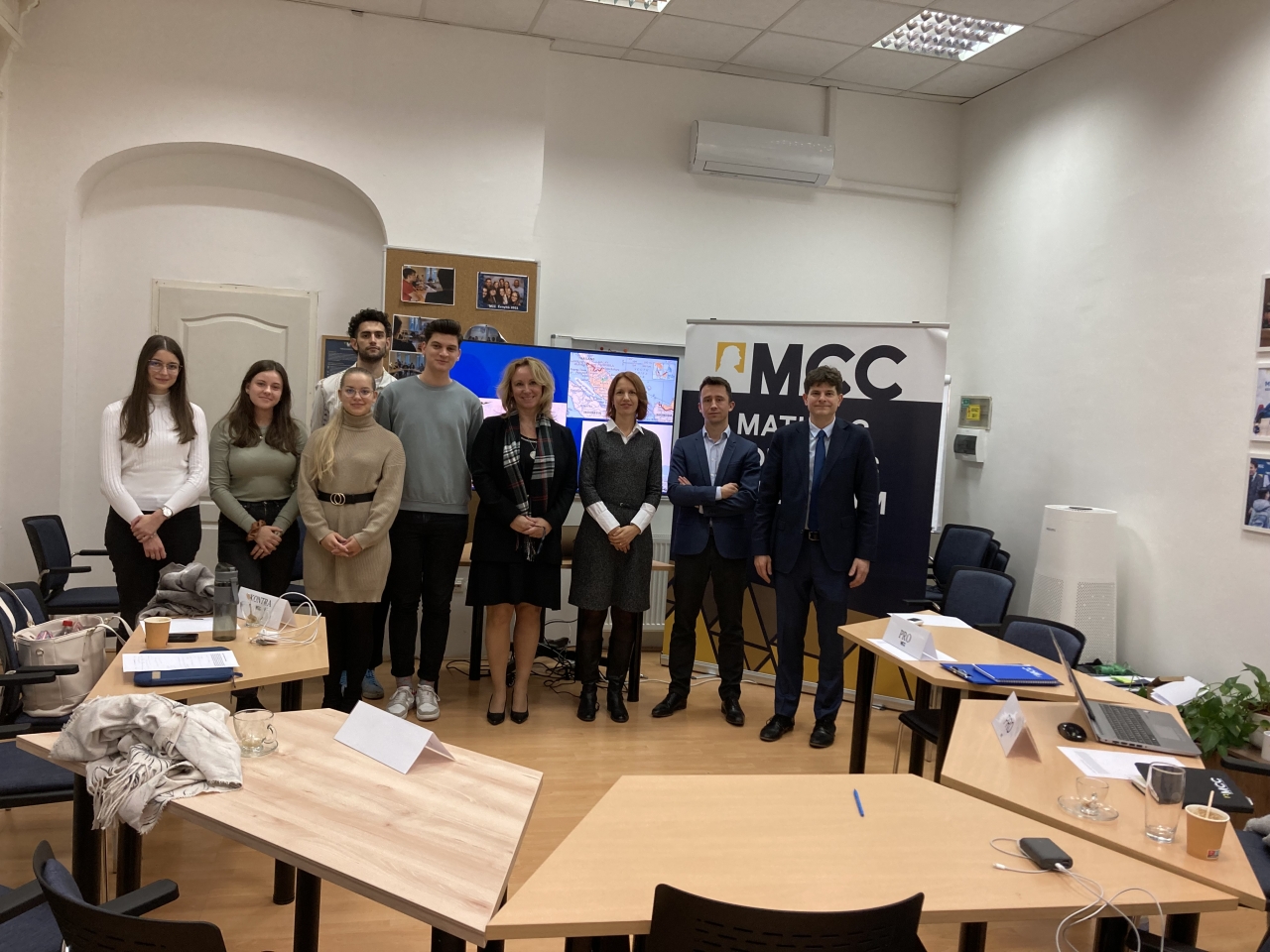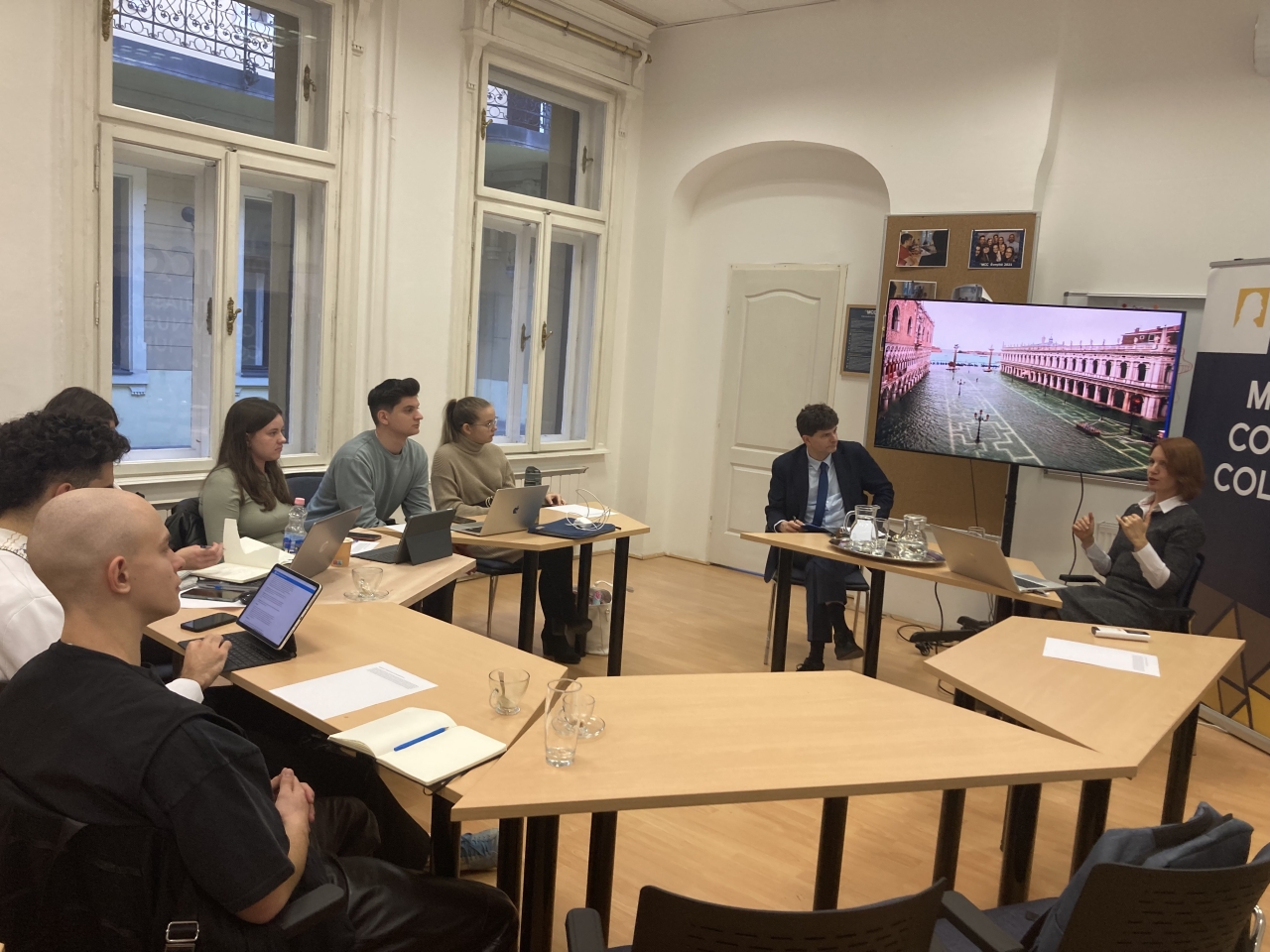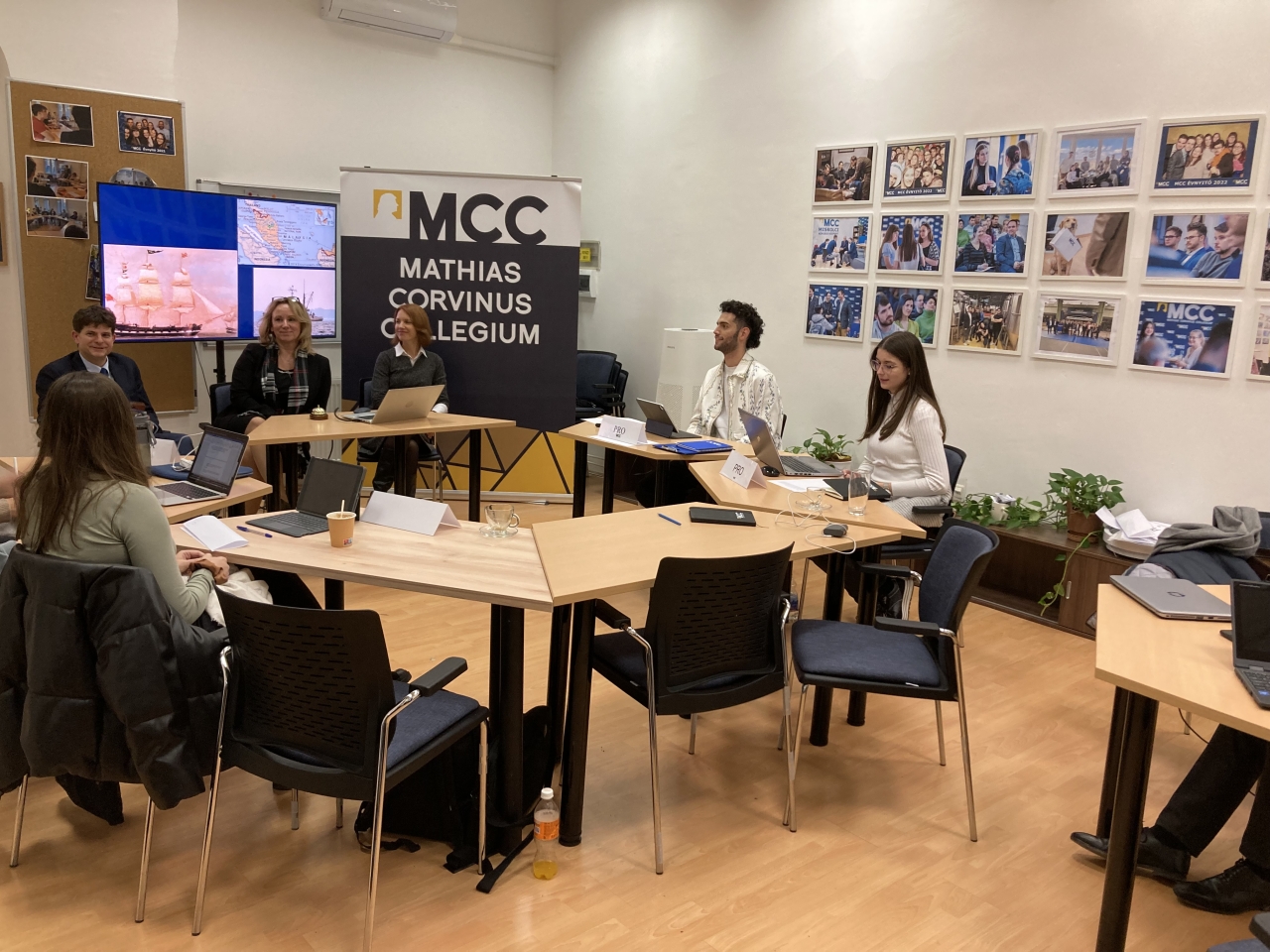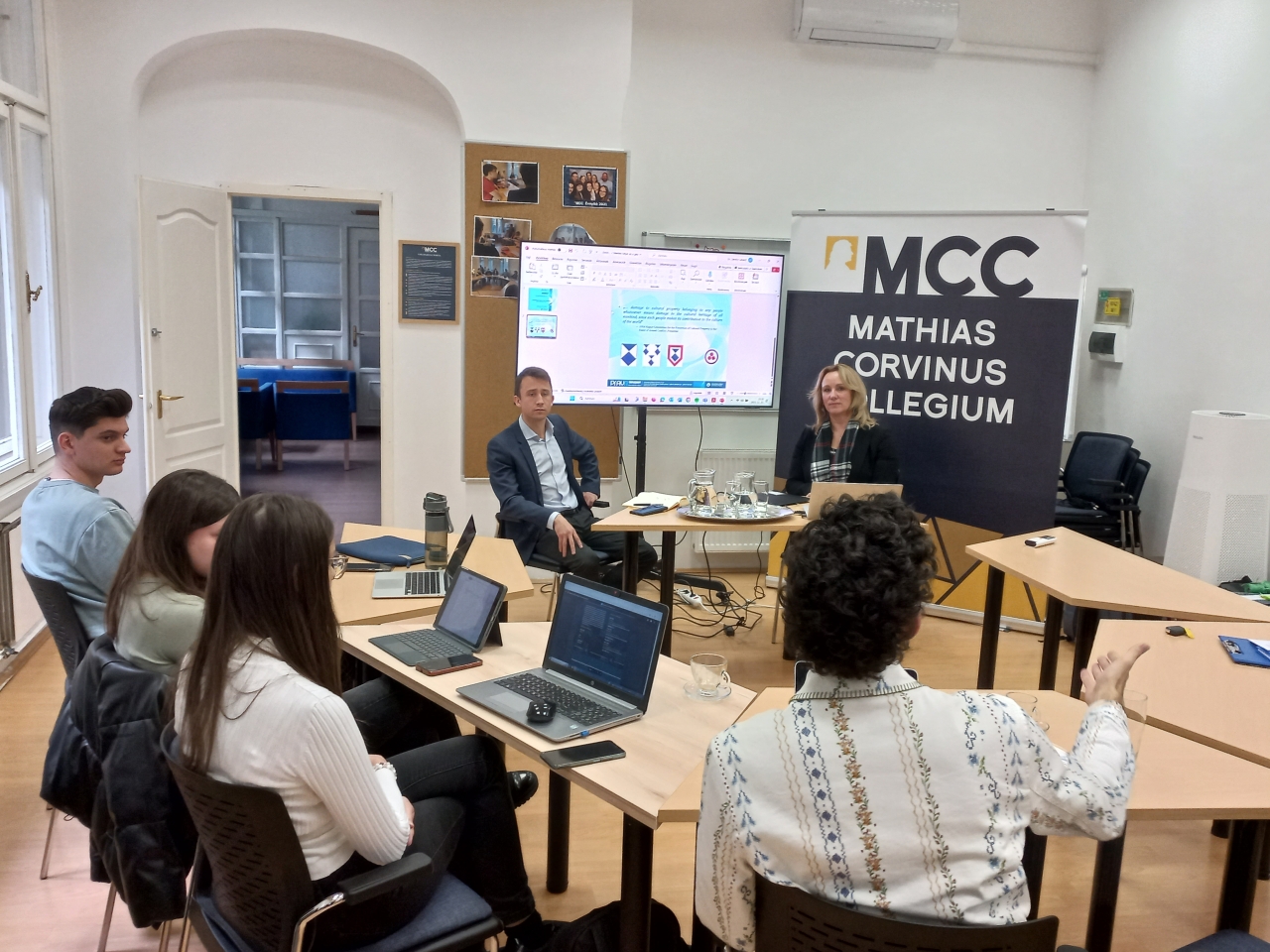Reading time: 2 minutes
The natural, economic and intellectual features the 21st century world pose many different challenges to our cultural heritage. The legal protection of cultural heritage, which expresses our way of life, traditions, worldview, our spiritual and emotional values, is therefore one of the most important objective of the future” – was pointed out during the MCC study days on the international legal protection of cultural heritage.
Students of the MCC Law School were able to learn about the concept and protection of cultural values during a organized by the Center for International Law in the MCC regional center of Miskolc. The exciting presentations and conversations explored the complex concept of cultural heritage, its indispensable role in society and the importance of its protection. The different aspects of cultural heritage were presented by Sandra Fabijanić Gagro, Petra Perišić, professors at the International University of Rijeka, Thubaud Gibelin, Visiting Fellow at MCC, and Lénárd Sándor, head of the MCC Center for International Law.
The discussions first focused on the concept of cultural heritage and its current international legal regulation. Cultural heriatge includes not only monuments, buildings, tangible or natural sites heritage, but also intangible heritage like music, dance, rituals and way of life, and underwater cultural heritage. The experts pointed out that the need to protect cultural heritage is not new, since the 18th century international legal professor, Emer de Vattel already pointed out “depriving people of monuments of art is tantamount to declaring oneself as enemy of mankind.”
The interactive presentations evaluated the protection of cultural heritage in armed conflicts along with the role of international humanitarian law, including in the conflicts of Ukraine and of the Middle East. The experts then looked at the complex relations between climate change, sea-level rise and the protection of cultural heritage. Finally, the panel discussions explored the tension between economic globalisation and cultural heritage protection as well as the potential ways on how to reconcile them. Unique questions were also explored including the adoption of zoning measures against foreign fast food chains in order to preserve traditional European culinary arts and the European way of dining or the international legal dilemmas of recovering shipwrecks and sunken treasures. The students took part in a debate competition, wich was followed by a excursion to the Bükk National Park.



